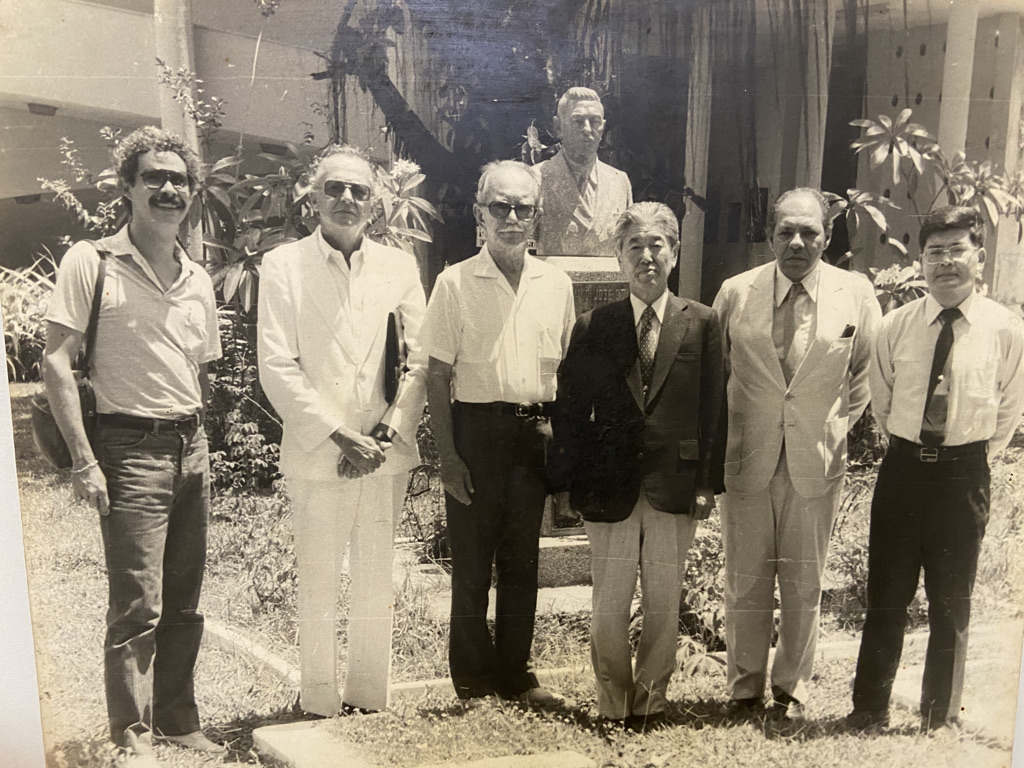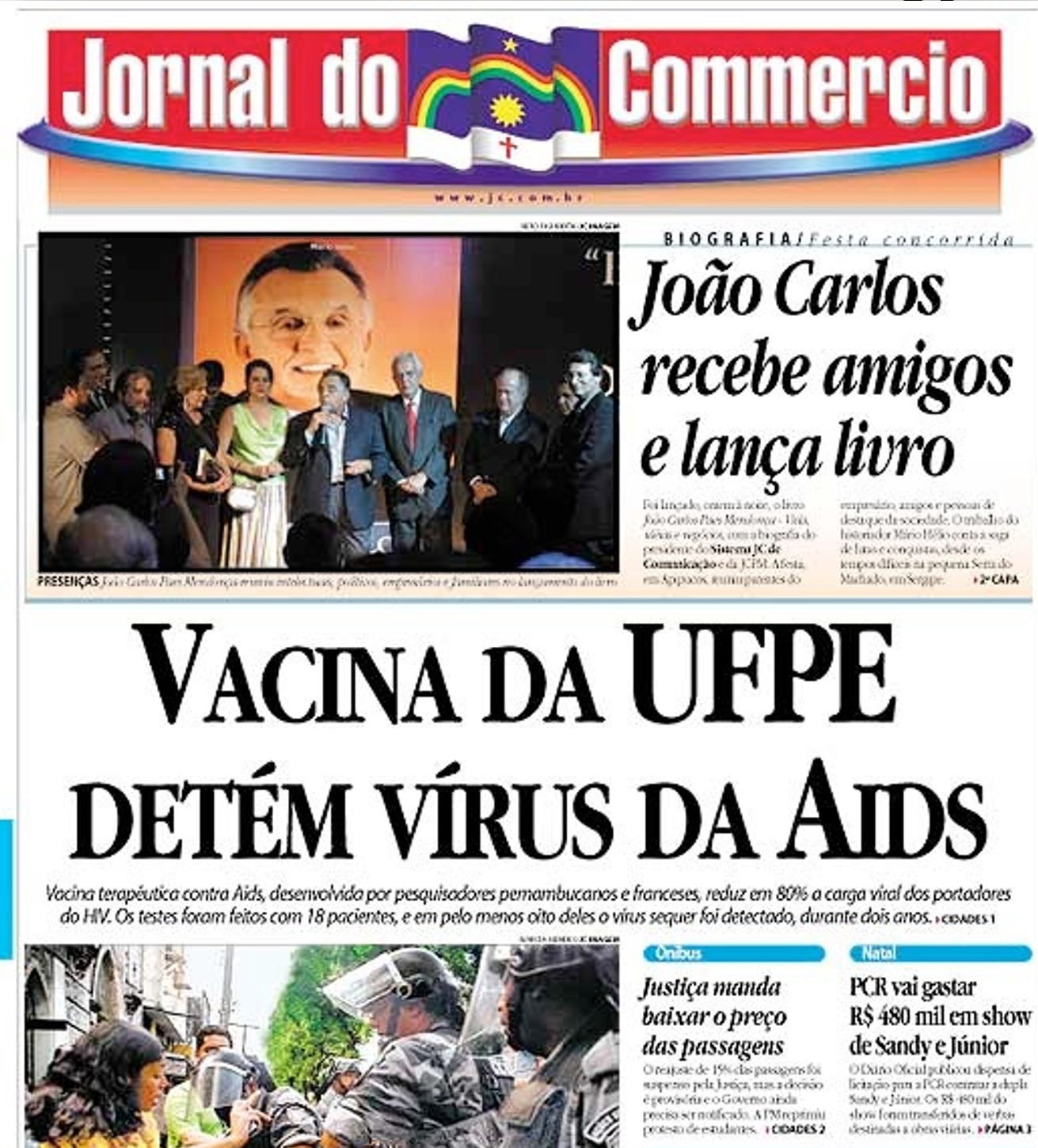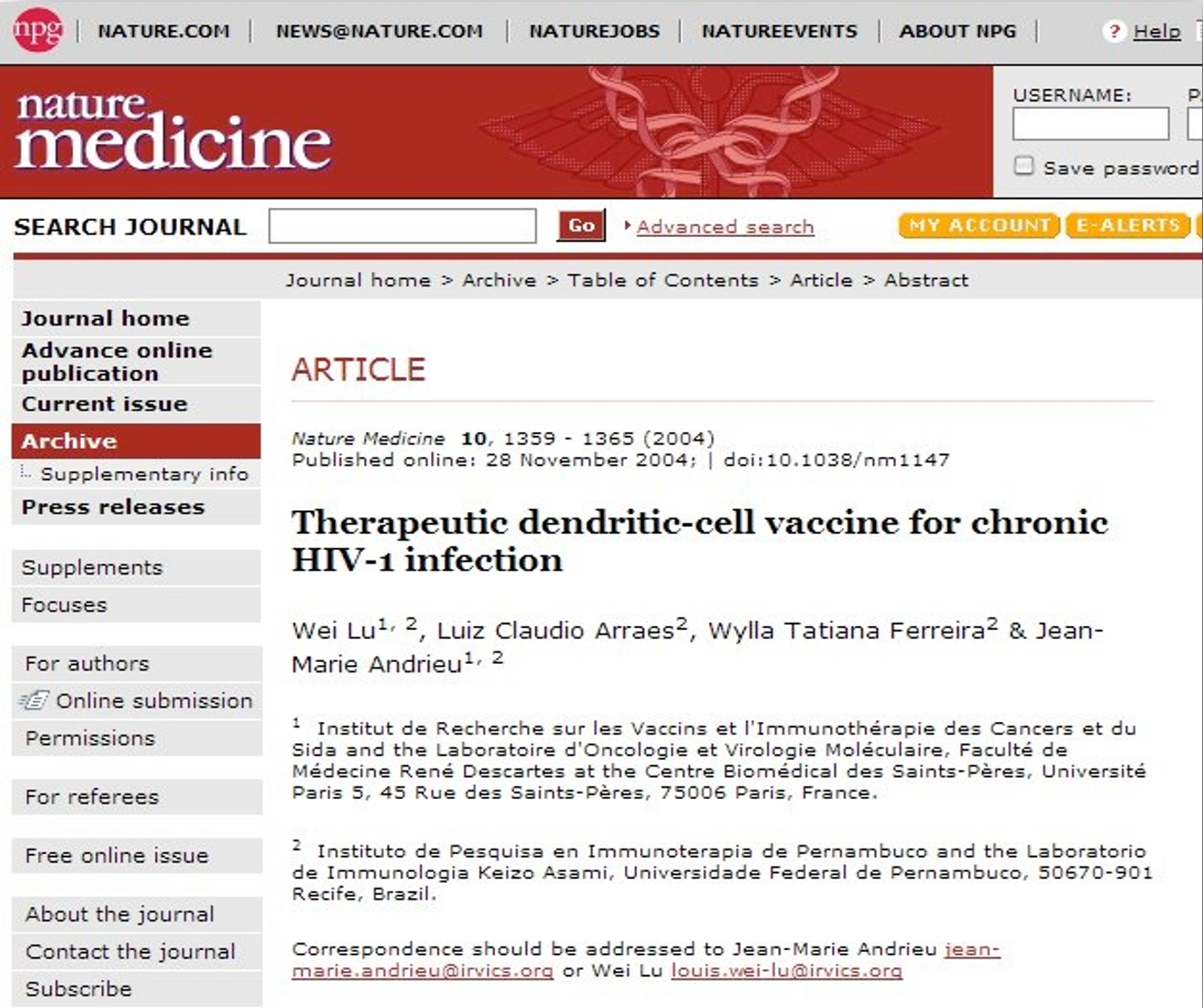Our History
Commemorative Photo: Institute Collection

LIKA was established in 1984 through an international agreement between the Brazilian and Japanese governments, with an initial investment by the Japan International Cooperation Agency (JICA) amounting to US$ 15,000,000. At the time, Prof. Keizo Asami from Keio University and the renowned Prof. Aggeu Magalhães Filho from UFPE created a set of laboratories aimed at studying tropical diseases in Northeast Brazil. The laboratories were inaugurated on April 23, 1986, and in honor of the Japanese scientist who passed away before the inauguration, UFPE named it the Keizo Asami Immunopathology Laboratory - LIKA. Three years after its creation, LIKA was transformed into a supplementary body of UFPE by decision of the University Council through Resolution No. 01/89 of 04/06/89. In October 1990, the Clinical Research Sector of LIKA was inaugurated within the UFPE Hospital das Clínicas, equipped to operate in the areas of endoscopy, ultrasonography, and radiology.
In its first decade, LIKA trained researchers and developed projects, always using internationalization in the pursuit of quality science for the well-being of the population. During the cooperation term (1986 – 1992), around 70 UFPE researchers were trained in Japan, while 30 Japanese researchers developed their activities at LIKA, solidifying international cooperation. The first significant transfer of knowledge generated at LIKA to society was the clinical study related to the diagnosis and treatment of amebiasis. Japanese researchers during their stay at LIKA demonstrated the existence of a elonon-pathogenic form of Entamoeba, now recognized as Entamoeba dispar, and revealed alongside Brazilian researchers that in Northeast Brazil, this form prevailed over the pathogenic form caused by Entamoeba histolytica.
In its second decade, LIKA continued conducting high-level scientific research, with a highlight being the collaboration with the Institute for Research on Vaccines and Immunotherapy for Cancer and AIDS at the University of Paris 5 - France, focused on studies on the therapeutic efficacy of an HIV-1 vaccine based on dendritic cells. In this project, eighteen chronically HIV-1 infected, untreated patients with stable viral loads for at least 6 months were immunized with autologous monocyte-derived dendritic cells loaded with HIV-1 inactivated by alditriol-2. Plasma viral load levels decreased by an average of 80% after immunization, and the results were published in Nature Medicine in 2004. Additionally, LIKA supported human resource training in various postgraduate programs and assisted in the creation of several research centers, both within and outside UFPE, such as:
- The Metabolic Engineering Center at UFPE, formed by the Microorganism Genetics Laboratories focused on microbial genetic modification work, and the Metabolic Engineering Laboratory with microbial physiology work, led by Prof. Dr. Marcos Antonio de Morais Junior.
- The Núcleo de Telesaúde (NUTES) at UFPE, a Telehealth Center established in 2003, originating from the first approved Telemedicine project associated with a public hospital (UFPE Hospital das Clínicas).
- The Núcleo de Saúde Pública (NUSP) at UFPE, a Public Health Center established in 2005, which continued the action of the Japan International Cooperation Agency (JICA) after the successful agreement that resulted in the creation of LIKA. The Head and Coordinator of the Japanese Mission at LIKA, respectively, Prof. Dr. TATENO Seiki and Ms. ROYAMA Harumi, were fundamental in the implementation of this new UFPE unit.
- The Núcleo de Pesquisas em Ciências Ambientais (NPCIAMB), an Environmental Sciences Research Center inaugurated on November 4, 1998, operating as part of the experimental research structure of the Catholic University of Pernambuco (UNICAP), coordinated by Prof. Dr. Galba Maria de Campos Takaki.
- The Electron Microscopy and Microanalysis Laboratory of the Northeast Strategic Technologies Center (Centro de Tecnologias Estratégicas do Nordeste (CETENE), created in 2005 by the Ministry of Science and Technology.
- The Governor Miguel Arraes Biofactory, inaugurated in May 2006, linked to CETENE/MCTI and located in the Mata Sul region of Pernambuco, began its activities within the premises of LIKA.


In the third decade of LIKA's existence, there was an expansion of the Laboratory's lines of research, bringing partnerships with national institutions, such as Hebron and Genomika, and international ones such as Fujirebio - Japan, Toshiba Medical (formerly Canon Medical) and NIID - Japan. LIKA continued to encourage the formation of centers and startups, which it is possible to mention:
- The Governador Miguel Arraes Biofactory opened in May 2006, linked to CETENE/MCTI and located in the Mata Sul area of Pernambuco, and its activities began on LIKA 's premises.
- Health Drone - startup created for solutions based on monitoring flights by unmanned aerial vehicles, semi-controlled routes and autonomous flights, with the application of Artificial Intelligence to recognize points of interest.
Furthermore, LIKA's staff organized events for scientific dissemination, the LIKA Scientific Day. It was joined to the International Symposium on Diagnosis and Therapeutics; and later the International Symposium on Rare Diseases. The engagement of new researchers and the increase in the number of research projects at LIKA stimulated the formation of the Postgraduate Program in Biology Applied to Health (PPGBAS). This program started in 2010 with master's and doctorate levels, for training professionals in different areas, with broad insertion in the national and international job market. This scenario was of great importance for LIKA to participate in actions in response to global events such as Zika virus infection, where a portable diagnostic system based on RT-LAMP technology was developed and validated, capable of determining the presence of ZIKV in up to 30 minutes in the processed sample. This work, which included researchers and students from LIKA and Japanese institutions, was published in Science Reports in 2017. In the same year, a PhD student won an award for “Dance your PhD”, an open challenge from Science journal. LIKA's research also expanded beyond the limits of the university to carry out health actions associated with the Círculo do Coração de Pernambuco (CirCor), which developed screening and monitoring actions for mothers infected by ZIKV and children born with microcephaly in cities in the state of Paraíba.






